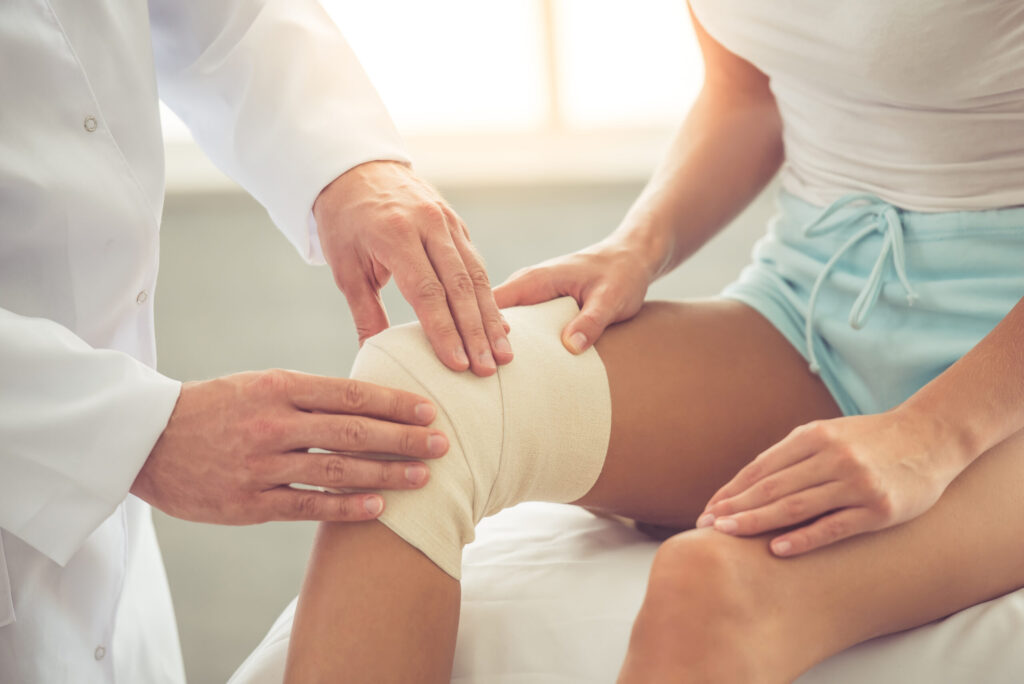Undergoing a knee replacement surgery is a significant event that can greatly improve your quality of life by alleviating chronic pain and restoring mobility. However, the journey to a successful recovery doesn’t end in the operating room. Physical therapy plays a crucial role in regaining strength, flexibility, and range of motion after your surgery. At PhysioLinks Rehab Clinic in Burlington, Ontario, our experienced physiotherapists are dedicated to helping you navigate the post-operative phase and achieve optimal recovery.
The Importance of Timely Knee Physiotherapy in Burlington
Starting physiotherapy at the right time after your knee replacement surgery is essential for several reasons:
Prevent Complications
Early physiotherapy can help prevent potential complications such as blood clots, joint stiffness, and muscle atrophy, which can hinder your recovery process.
Accelerate Healing
Gentle exercises and mobilization techniques can promote blood flow, reduce swelling, and facilitate the healing process, allowing you to regain strength and mobility more quickly.
Improve Range of Motion
Targeted stretches and exercises prescribed by your physiotherapist will help you gradually increase your range of motion, ensuring optimal joint function and mobility.
Enhance Strength and Stability
Strengthening exercises will target the muscles surrounding your new knee joint, improving stability and reducing the risk of future injuries or complications.
Promote Independence
By working closely with your physiotherapist, you’ll learn proper techniques for daily activities, enabling you to regain independence and confidence in your movements.
When to Start Physiotherapy After Knee Replacement
The timing for initiating physiotherapy after a knee replacement surgery can vary depending on individual factors and your surgeon’s recommendations. However, here’s a general timeline:
Day 1 (Within 24 hours after surgery)
Your physiotherapist may visit you in the hospital to provide initial guidance on exercises and precautions to follow immediately after your surgery.
1-2 weeks post-op
During this early phase, your physiotherapist will focus on managing pain and swelling, practicing gentle range-of-motion exercises, and helping you regain mobility with assistive devices like walkers or crutches.
2-6 weeks post-op
As you progress, your physiotherapy sessions will become more intensive, incorporating strengthening exercises, balance training, and functional mobility activities to prepare you for a full return to daily activities.
6 weeks and beyond
Depending on your progress and goals, your physiotherapist may continue to work with you on advanced exercises, gait training, and any necessary modifications to ensure a safe and successful long-term recovery.

Frequently Asked Questions
How long will I need physiotherapy after a knee replacement?
The duration of physiotherapy can vary, but most patients continue to benefit from ongoing treatment for several months after their surgery. Your physiotherapist will monitor your progress and adjust your treatment plan accordingly.
Can I start physiotherapy before my knee replacement surgery?
Yes, in many cases, it’s beneficial to participate in pre-operative physiotherapy to improve your strength and range of motion, which can aid in your post-operative recovery.
Will physiotherapy be painful after knee replacement surgery?
Your physiotherapist will work closely with you to manage any discomfort or pain during your sessions. While some temporary soreness is normal, the exercises and techniques should not cause excessive pain.
Can I do physiotherapy at home, or do I need to visit a clinic?
A combination of in-clinic and at-home physiotherapy is often recommended. Your physiotherapist will provide you with a personalized home exercise program to complement your clinic visits.
What should I bring to my physiotherapy appointments?
It’s helpful to wear comfortable, loose-fitting clothing and appropriate supportive footwear. Your physiotherapist may also recommend bringing any assistive devices you’ve been using, such as crutches or a walker.
About the Author
Annet Abraham, BPT, Registered Physiotherapist
Annet Abraham is a dedicated and experienced physiotherapist at PhysioLinks Rehab Clinic, with a special focus on orthopedic rehabilitation and post-operative recovery. With her extensive knowledge and expertise in biomechanics and human movement, Annet plays a crucial role in designing and overseeing personalized rehabilitation programs for patients recovering from knee replacement surgeries.
Annet’s passion for helping patients regain their mobility and independence drives her commitment to staying up-to-date with the latest research and best practices in post-operative physiotherapy. She regularly attends workshops and seminars to enhance her skills and ensure that her patients receive the most effective and evidence-based care.
At PhysioLinks, Annet works closely with each patient, taking the time to understand their unique needs, goals, and concerns. She designs tailored rehabilitation programs that not only address the physical aspects of recovery but also provide emotional support and education, recognizing the challenges that can accompany a major surgical procedure like a knee replacement.
With Annet’s expertise and guidance, countless patients have successfully navigated the journey to optimal recovery after their knee replacement surgeries, regaining their strength, mobility, and confidence to return to the activities they love.
Physio After Knee Replacement in Burlington
If you’re preparing for a knee replacement surgery or are in the post-operative recovery phase, contact our Burlington physiotherapy clinic and experience the personalized care and support provided by Annet and the entire team of highly skilled physiotherapists.
Visit our GMBs to see which location is closest to you!